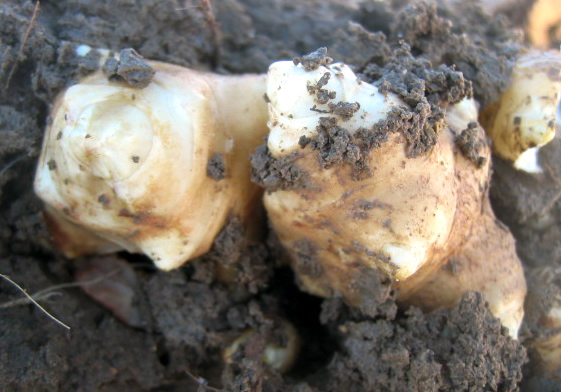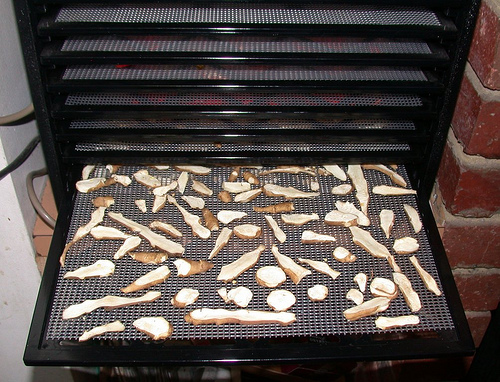Jerusalem Artichoke

Jerusalem Artichokes are not artichokes at all but rather a type of sunflower. They grow carbohydrate-rich roots and are therefore very interesting as a crop for bioenergy (ethanol, i.e. Fuel Alcohol) and as fodder.
The name is a misnomer that apparently happened because of the name "girasole" (ital. = sunflower). Synonyms include "sunchokes" (US), sunroot and topinambur.
Medicinal
Quoting from OSE blog (see link below): "They produce terrific amount of flatulence for most consumers." This is because of the large amounts of inulin which is not digestible by humans. However, this may be a temporary effect on the intestinal microbiome. After some time of continued inulin ingestion, inulin-metabolizing bacteria proliferate (e.g. lactobacilli, firmicutes, etc.) and so the microbiome adapts. This is also referred to as the "bifidogenic effect".
Lacto-Fermentation
Because of these "issues" relating to high inulin content, lacto-fermentation has been tried, and apparently can reduce this effect and enhance the nutritional value. Here are some reports.
- http://www.5acresandadream.com/2014/02/lacto-fermented-jerusalem-artichokes.html
- http://foodpreservation.about.com/od/LactoFermentation/r/Fermented-Sunchokes-Recipe.htm
- http://agardenerstable.com/2014/02/24/taking-the-wind-out-of-jerusalem-artichokes/
- https://youtu.be/8mYSt301TyA
Uses
- Alcohol can be a gas! (tubers)
- food and fodder (tubers)
- Medicinal (tubers, see above)
- silage (green parts)
- ornamental (flowers)
Links
- OSE Blog March 2008: The Value of Jerusalem Artichokes
- OSE Blog May 2008: On Biofuels
- Wikipedia: Jerusalem Artichoke
- "Yield 8 Pounds of Edible Sunchoke Tubers from a 3 Gallon Nursery Pot" (Youtube video)
